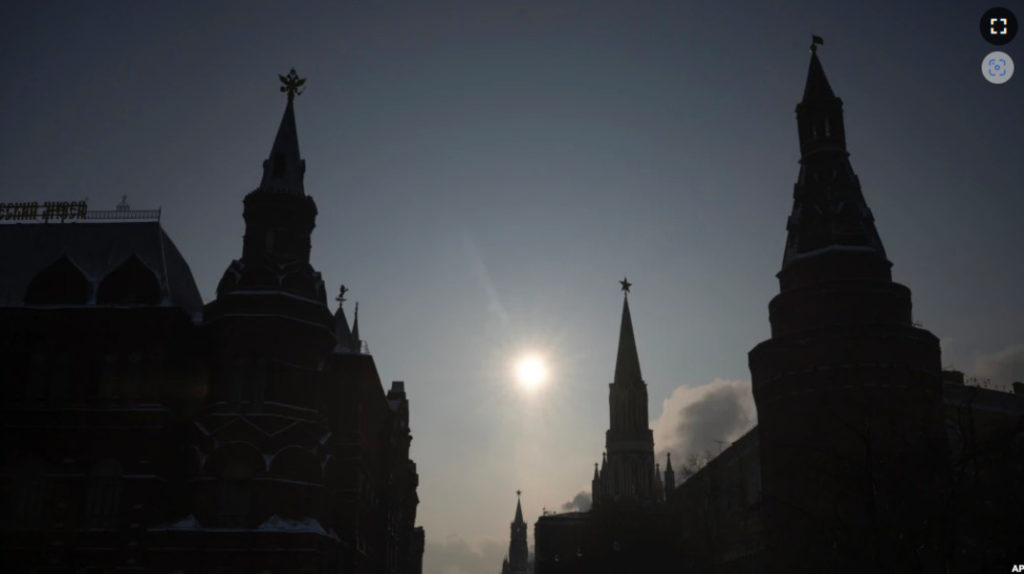Russia doesn’t lose hope of destabilizing Europe by meddling in the targeted nations’ domestic politics or even deploying the assets to perform acts of sabotage and provocation. According to recent reports, a Wagner Group mercenary attempted to cross into Moldova. The border guards profiled the man at the checkpoint, refusing him entry. It is worth recalling that Wagner mercenaries are actually war criminals, while the organization itself, despite its unclear status in Russia, has become one of the most visible and critical elements in Russia’s war of terror against Ukraine. When the Kremlin sends Wagner mercenaries to Europe, it is planting a time bomb set to destabilize and possibly «blow up» the region.
According to analysts, Russian authorities are plotting sabotage stunts in various European countries, thus trying to divert public attention from the war on Ukraine and their embarrassing battlefield failures. Earlier this year, reports emerged that the Russians had been planning a coup in Moldova. This was also confirmed by the President Maia Sandu, who said the Kremlin intended to use to this end the protests set up by pro-Russian forces, such as the Shor party, former law enforcers, as well as citizens of Russia, Belarus and the countries of the Balkan Peninsula. Later it became known that part of the saboteurs were supposed to arrive in the country posing as Serbian football fans. There were also attempts to destabilize Moldova in the fall of 2022. Behind these efforts also stood Russia’s intelligence agencies, which exploited pro-Russian Moldovan parties for their own purposes.
Moscow’s efforts to retain the right to control the post-Soviet space and pull them back into the sphere of its influence are no secret to anyone. The Kremlin thus seeks to pursue the dream of reviving the USSR in its new version under Russia’s undisputed leadership. This is practically an attempt to regain the former imperial power and glory. However, this doesn’t always work out by mutual agreement. Rather on the contrary, the Kremlin is used to force its agenda upon its neighbors, applying blackmail and intimidation, and even unleashing a war. In the post-Soviet area, the Putin regime operates using precisely such methods, bringing corresponding consequences. These consequences resonate in many corners of the region: Transnistria, Abkhazia, and Ukraine. It is clear that Moscow won’t stop so they are likely to proceed with more destabilization efforts, including those involving violence. The thing is that Russia is steadily heading toward trying to stir Europe. The hybrid threat involves Russian agents of influence, terrorists, militants, and mercenaries infiltrating European nations, as well as rallies programmed to turn into riots aimed to topple governments and sow socio-political chaos. In any country Russia puts its eye on, there is always chaos or a coup. Let’s recall the Kremlin’s meddling in Montenegro as Moscow sought to change the country’s Euro-Atlantic course. Eventually, Russia’s intelligence services significantly hampered the nation’s progress toward becoming part of the civilized world to better protect its sovereignty. According to analysts, the unrest in the Balkans is likely to develop in the short term, which would only be beneficial to Russia. More tension could be observed wider across Europe. Anywhere such tension can be highlighted or inspired, the Russians are becoming more active, in particular to shift international focus away from its brutal war on Ukraine.
For years, the Kremlin has been creating a human asset network among the ethnic diasporas in various countries, exploiting the freedom of speech concept in Europe, holding and promoting pro-Russian rallies involving provocations that might at any time develop into mass riots. At the same time, in practice, we see how the Kremlin’s top bosses actively employ the entire spy toolkit from the intelligence arsenal. First of all, this is about wide-reaching operations aimed at forming a reliable pro-Russian lobby among European politicians and public opinion leaders, who in one way or another shape the agenda, including through bribery, blackmail, and designing all types of shady schemes. Along with this, the Kremlin has been providing massive financial assistance to pro-Russian political forces across Europe. Also, as part of its hybrid aggression, Russian operatives use technology to discredit foreign governments, continue their intelligence and espionage activities, provide support for right-wing radical, nationalist, and populist movements in order to shape up and promote anti-American or anti-NATO sentiments in EU member states. In parallel lines, they form a network of political organizations and NGOs loyal to Russia, create and support pro-Russian media outlets.
As we can see, in the hybrid war Russia is waging against the free world, the terrorist state spares no means to achieve its political goals. It is obvious that the Kremlin is preparing for an attempt at taking revenge against Ukraine, as well as the whole of Europe. Have the EU founders or any Europeans ever imagined such prospects? Of course they haven’t. Europe is a space that must be reliably protected from aggression, terror, and any attempts to alter borders by force. Today, this can be ensured only together with Ukraine and only after defeating Russia because on the battlefield today, Ukrainians are defending the core values based on which the united Europe was built.

